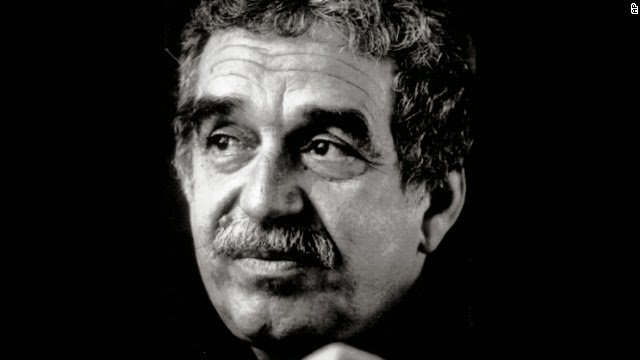Uncategorized
Nobel Prize-winning author, Gabriel Garcia Marquez dies at 87
Gabriel García Márquez, the influential, Nobel Prize- winning author of “One Hundred Years of Solitude” and “Love in the Time of Cholera,” has died, his family and officials said. He was 87.
The literary giant was treated in April for infections and dehydration at a Mexican hospital.
García Márquez, a native of Colombia, is widely credited with helping to popularize “magical realism,” a genre “in which the fantastic and the realistic are combined in a richly composed world of imagination,” as the Nobel committee described it upon awarding him
the prize for literature in 1982.
He was sometimes called the most significant Spanish-language author since Miguel de Cervantes, the 16th-century author of “Don Quixote” and one of the great writers in Western literature. Indeed,
Chilean poet Pablo Neruda told Time that “One Hundred Years of Solitude” was “the greatest revelation in the Spanish language since
the Don Quixote of Cervantes.”
The author’s cousin, Margarita Marquez, and Colombia’s ambassador to Mexico, José Gabriel Ortiz, confirmed the author’s death to CNN
on Thursday.
“We’re left with the memories and the admiration to all Colombians and also Mexicans because I think Gabo was half Mexican and half Colombian. He’s just as admired in Mexico as he is in (his native) Colombia, all of Latin America and throughout the world,” Ortiz told CNN en Español.
“I believe they were somehow emotionally ready for this regrettable outcome. They knew he was suffering from a complex, terminal disease and was an elderly man. I believe (Garcia Marquez’s widow Mercedes Barcha) was getting ready for this moment, although
nobody can really prepare themselves for a moment like this.”
The author — known by his nickname “Gabo” throughout Latin America — was born in the northern Colombian town of Aracataca, which became the inspiration for Macondo, the town at the center of “Solitude,” his 1967 masterpiece, and referenced in such works as his novella “Leaf Storm” and the novel “In Evil Hour.”
“I feel Latin American from whatever country, but I have never renounced the nostalgia of my homeland: Aracataca, to which I returned one
day and discovered that between reality and nostalgia was the raw material for my work,” reads a mural quoting the author outside of town.
García Márquez’s early life was shaped by both
familial and political conflict. His grandfather, a widely respected figure known as the Colonel, was a liberal military man who strongly disagreed with the political views of García Márquez’s father, a conservative telegraph operator who became a pharmacist. (His father’s ardent pursuit of his mother later inspired “Love in the Time of Cholera.”)
Their political disagreement came to reflect that of Colombia as a whole, a country that spent a postwar decade in the grip of what was called “La Violencia,” a civil war that followed the assassination of a populist leader.
-

 Celebrity Gossip & Gist1 day ago
Celebrity Gossip & Gist1 day ago“He’s a sure giver” – Davido warms hearts as he gifts female fan N58m ($50k) to clear off her student loan
-

 News1 day ago
News1 day agoTunde Onakoya beats US national chess master as he attempts to break Guinness World Record
-

 Celebrity Gossip & Gist1 day ago
Celebrity Gossip & Gist1 day agoPortable blows hot as Verydarkman urges him to check paternity of his kids
-

 Celebrity Gossip & Gist1 day ago
Celebrity Gossip & Gist1 day agoNigerians dig old video of Korra Obidi admitting to cheating on her ex-husband few hours after she denied allegations









